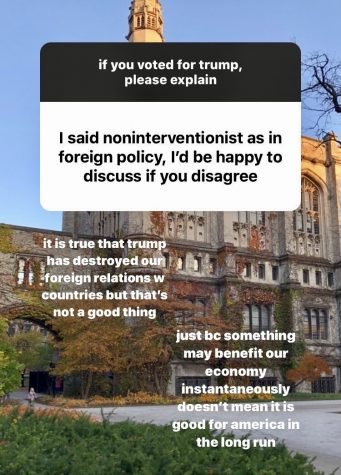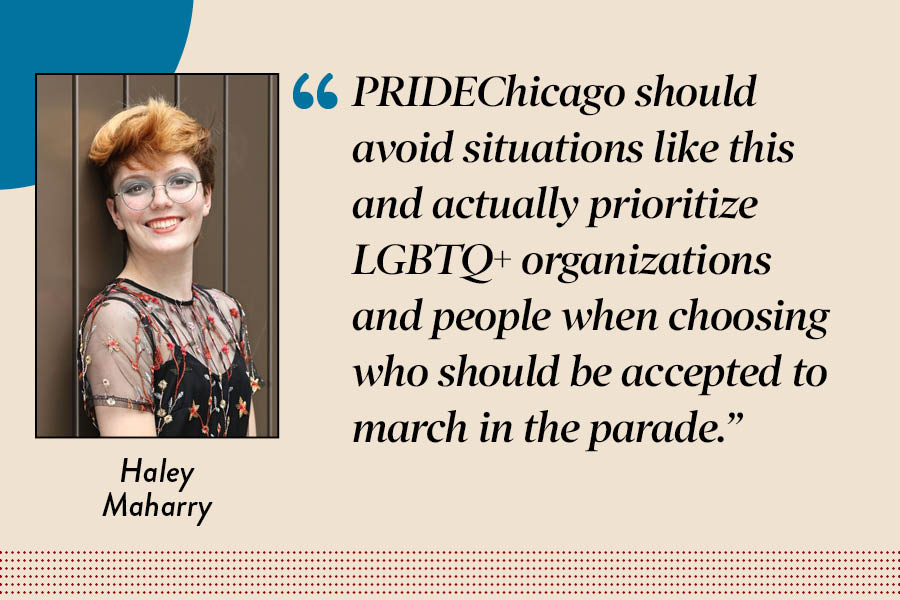Regardless of reasons to participate in Instagram activism, results are impactful.
January 13, 2021

Snippets of videos, screenshots of tweets and insulting memes regarding each presidential candidate flash one after another. Bursts of color and sound decorate the parade of information. — this is what millions of Instagram users were faced with during election week in 2020.
However, after the results of the election were revealed, the overwhelming number of stories on politics gradually decreased. Only a few kept up with the daily or hourly postings, ever so fervently speaking out.
A subtle pattern has emerged where most people only take part in activism on Instagram when matters such as the election are “trending,” and subsequently, only a few are just as passionate as before, although the same issues remain.
University of Chicago student Celia Leiter, also a Laboratory Schools aluma, continuously advocates on Instagram. During the past few weeks, Celia has consistently posted on Instagram about her beliefs regarding current events, and said that posting and interacting with her followers has helped her learn a lot and has better prepared her to discuss current topics such as the election. She also took a step further from sharing her beliefs and questions and posted her followers’ responses, replying to each one so that it resembled a digital conversation.
However after the election, Instagram stories have somewhat returned to the occasional selfie, group photo with friends or an “instagrammable” dessert, and there is the question of if the previously “trending” activism is considered performative or not.
Tona Martinez, a junior, believes that regardless of reasons for activism, as long as people are even just slightly more conscious than they were before, sharing posts and following the “trend” still has an effect in spreading awareness and creating change.
Similarly, Celia believes that whether or not activism was done for more superficial reasons, it can still benefit others, and it is a step in the right direction. Nonetheless, she said posting about a variety of topics, especially if personal, can be beneficial.
“What’s better than just performative activism — reposting the same infographics that everyone posts on their stories?” Celia said. “It would be more interesting if people posted things they really care about or want to talk about.”
This is true for Tona, who said diverse and personal topics are more impactful to her as a viewer.
However, junior Zoe Morton observed that people are easily swayed by what they see as popular on social media and change their stories and posts to fit in, even if they are somewhat ingenuine.
“People naturally stop posting about one specific topic when a newer thing comes along,” she said.
Yet Tona still believes in the importance of advocating for a variety of topics since they are still significant and meaningful, even if they are “outdated.”
She said, “Issues will always be relevant, so even if the ‘trend’ is over, they still impact the way we see the world today and how policies are being formed.”
Activism is just as important now as before since societal issues are still present, whether or not they are considered to be “trending.” More Instagram users are equipped with a voice to speak out, and it is crucial to stay motivated about advocating for what one believes in. Activism doesn’t necessarily mean bright colors or reposting popular images and information chains; it can simply be some thoughts on a topic or issue, regardless of its currency or popularity. Even if a person participates in activism for performative reasons, they can still have a far greater impact than not posting at all.

















